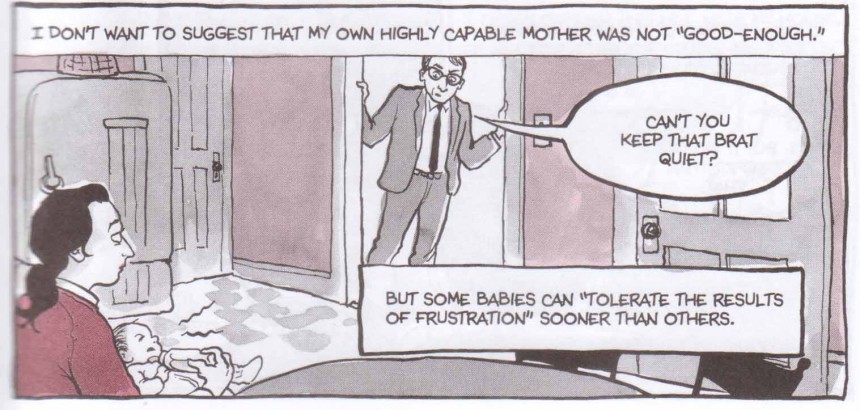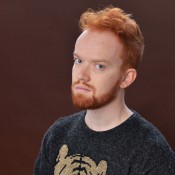Let’s make a canon! And let’s fill it with queer art, or queer-ish art, or art that has no idea how queer it is. Queer art is often secret art: black-market, whispered-about, read-between-the-lines art. And since secret art can be hard to find, let’s shine a light on a few of our favourite things so all our friends can see them.
We’ll call it a canon, because it sounds Weighty and Important and Serious, but we also won’t be too serious about it. We won’t make The Canon, just a canon. Each month, we’ll chat with a different queer-about-town and ask them to submit something to the canon. And they’ll tell us what that book or play or movie or TV episode or sculpture or poem or dance piece or opera or photograph or painting or performance art piece or anything else means to them and why they think it deserves a spot in our illustrious canon.
This month, we talked to actor Lindsey Clark about Alison Bechdel’s graphic novels Fun Home (2006) and Are You My Mother? (2012).
So, what are we talking about?
Well, it’s a tall order. There’s so much that I wanted to include from so many different parts of my life. But when I looked at my books, I pulled out these two: Fun Home and Are You My Mother? I’m gravitating toward Fun Home, and I don’t know if it’s because it was this musical, and so I think it should be in the canon, but then part if me is like “I wanna go for the more subversive canon choice…”
You could put them in as a pair, if you want.
I think I would put them in as a pair, cause they’re very connected.
Right.
They’re both so queer in different ways. Fun Home is the story of Alison Bechdel and her father. And she’s working out her relationship with her father who kills himself—she thinks—when she was 20, and also who she discovers was gay. And she’s gay as well. And then Are You My Mother? is about her relationship with her mother. And it’s also very psychology-focused, so there’s a lot of scenes of her with her therapist. And the book is really super queer—she has all her girlfriends in it, there’s lots of naked pictures. But the other thing about it is it’s so raw and open. She writes things that, as a person who has done therapy for a long time and still does it, it’s really interesting to have insight on someone else’s experience. And that feels really subversive: to be open in this way about something that is supposed to be this private experience.
And kind of a secret experience.
Therapy is interesting, because in my mother’s generation, it’s kind of like “you must have a problem to be doing therapy.” And a lot of people still believe that, but a lot of people are just wanting to know themselves—for me, that’s what it is. Just a constant way to check in with myself and know more about myself and challenge myself. And I read Fun Home, and I was super moved by it, and then the second one comes out, and you’re like “Oh, it’s not gonna be the same…” But it’s so different. Now I’m thinking, yeah, they should both be in there. You can’t really have one without the other. You can’t have Are You My Mother? without Fun Home. Fun Home does stand alone.
But less so, Are You My Mother?
No, I think it stands on its own, but it’s so much richer when you’ve read this one, because you understand so much more about where she came from. It really enriches the second book’s narrative.
So, when did you first become aware of Bechdel? Did you read Dykes to Watch Out For?
I did! I used to work the bar at Tarragon. And in between the pre-show and intermission, you’d kinda be waiting around, and they had Xtra!s there and I’d read them, and I’d always read Dykes to Watch Out For. At the time I was probably 20, and it was a novel thing to be reading a comic about gay people. So yeah, that’s when I first heard of her, and then we talked about The Bechdel Test in my Women’s Studies classes at university.
In a way, her greatest legacy may be The Bechdel Test, right? That’s probably the thing that she’s created that the most people have heard of and has had the widest reach.
Yeah, I think that’s a really good point
So, what do you think queers of the future could find in these books? What will nourish their queer souls?
They’re definitely books about family and identity and parents. And something else that I like is that she’s in her 50s when she wrote Are You My Mother?, and I do love a good viewpoint of an older woman. She talks about how she’s going through menopause. And we don’t see that. And maybe queers of the future will be very well versed in that and it’ll be all over the place, but I think it’s very important at this time to have that voice and to have someone to look up to. There’s places to go; there’s places to grow. There’s so much life to live.


